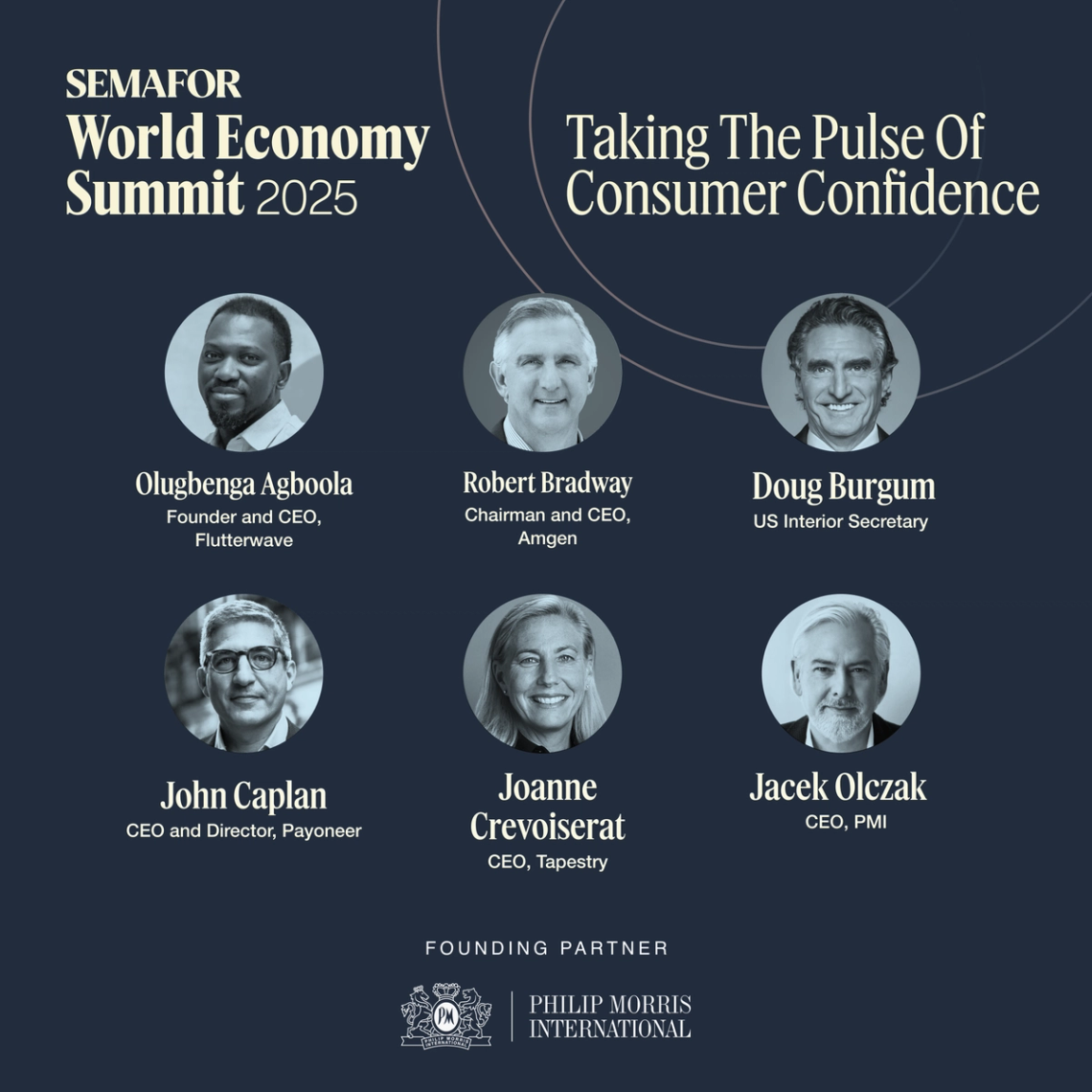 Olugbenga Agboola, Founder and CEO, Flutterwave; Robert Bradway, Chairman and CEO, Amgen; Doug Burgum, US Interior Secretary; John Caplan, CEO and Director, Payoneer; Joanne Crevoiserat, CEO, Tapestry; Jacek Olczak, CEO, PMI and more will join the Taking the Pulse of Consumer Confidence session at the 2025 World Economy Summit. As consumer spending drives global economic growth, this session examines how shifting demographics, digital transformation, and economic uncertainty are redefining consumer sentiment and behavior worldwide. April 25, 2025 | Washington, DC | Learn More |